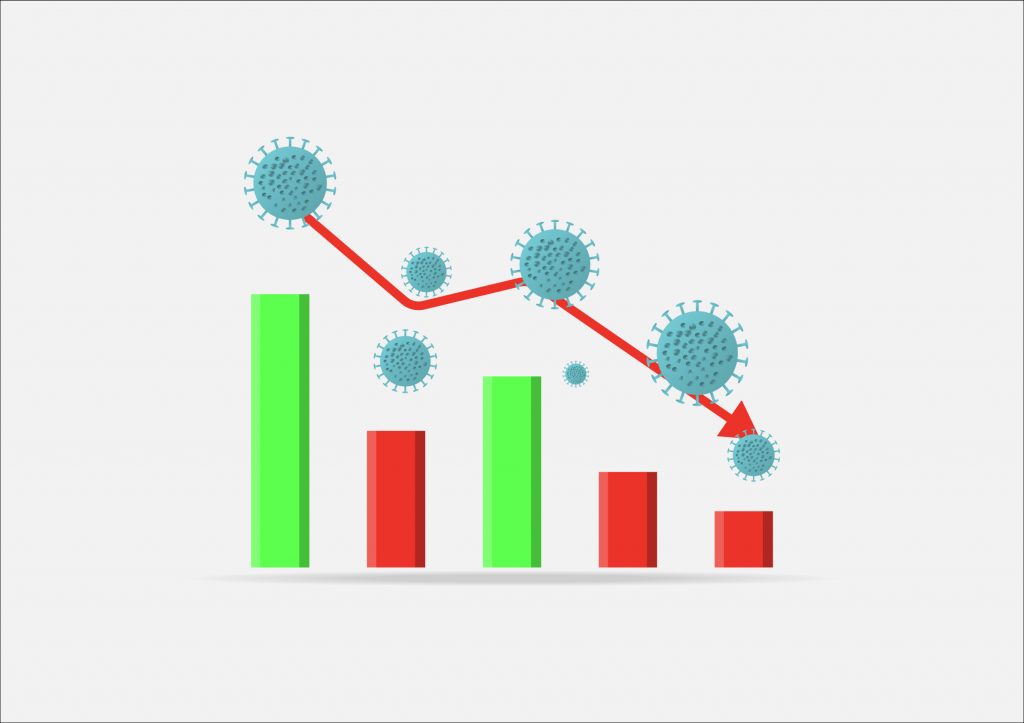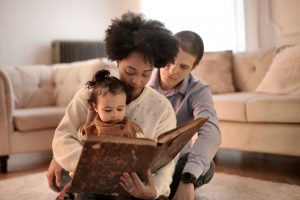The last few weeks in the markets have been a roller coaster, with trading halted three times over the past two weeks as well as day-to-day swings in market prices. Many investors are panicking right now, and that’s understandable, especially if you’re listening to news about COVID-19 on a regular basis.
When we talk about “the markets,” we’re referring to huge information-processing machines that are designed to manage uncertainty in the long run. Markets process information as it becomes available. When there is uncertainty, it may result in sudden, dramatic growth or decline.
That’s what the markets are doing now, as the World Health Organization declares coronavirus a pandemic — responding to new information as it becomes known, as well as to all of the unknowns and the pace at which things are changing. Historically, the markets have acted similarly when faced with the Ebola and swine flu outbreaks, and even with the global financial crisis of 2008 and 2009.
History doesn’t show a reliable way to identify when the markets have peaked or bottomed out — but it does show us that the markets do recover. U.S. equity returns following sharp downturns have historically been positive. A broad market index tracking data since 1926 shows that stocks have generally delivered strong returns over the one-year, three-year, and five-year periods following steep declines, according to Dimensional Fund Advisors.
For that reason, from an investment perspective, it’s important to take a step back right now. As disruptive as these market shocks feel now, they’re likely to turn out to be noise in a decades-long period of market growth. It doesn’t make sense to make decisions based on fear and speculation, as tempting as that might be during this time of uncertainty.
Instead of panicking this spring — or in spite of it — focus on the concrete actions you can take to protect your investments for the long-term future.
Rebalance Your Portfolio. A market dip can be a good opportunity to rebalance your portfolio. Rebalancing is the process of revisiting your target asset allocation — the mix of stocks and bonds that comprise your portfolio — and making sure the assets you hold are in line with those targets. Rebalancing is the mechanical process of selling from investments that are over the target and using those proceeds to purchase the investments that have dropped in value — sell high, buy low. Generally, for investors who are saving for retirement, a financial advisor may recommend a portfolio that has a higher allocation to equities (stocks) for younger investors and gradually shift this towards more fixed income (bonds) as you approach retirement.
When the stock market is performing well, as it has been for nearly a decade, stocks may gain value faster than bonds, resulting in a portfolio that has a larger percentage of stocks than intended. But when the markets turn downward, those investors may see bigger losses than they’re prepared for.
Work with your financial advisor to rebalance your portfolio in a way that remains in line with your long-term goals rather than responding to market volatility. That way, your portfolio will be maximized to capture the stock market’s recovery when — not if — it happens.
Check in on Your Cash Needs.
Take a look at your plans for the next six to 12 months and note any upcoming cash needs. If you run a business, it is ideal to run a 12-month projection with a potential reduction in income to see how much cash you may need to keep on hand to cover overhead. If you do not currently have the necessary cash available, talk to your financial advisor about the most prudent way to draw down your portfolio in the midst of market fluctuations.
Tune Out The Noise.
It’s easy to feel overwhelmed by the constant deluge of news about COVID-19. To whatever extent you can, turn off the news and focus on your long-term financial well-being. Remember, despite the Great Recession, if you’d invested $10,000 in the S&P 500 index in January 2000, your investment would be worth more than $32,000 by the end of 2019 (excluding transaction costs, taxes and management fees.)
When you view your investments with this long-term lens, market volatility becomes less concerning. This is a temporary dip; your strategy is focused on the still-distant future.
Trust A Professional.
If you don’t trust yourself to resist making sudden changes to your investments during the COVID-19 pandemic, consider seeking out a financial advisor who can help you weather storms like this. A financial professional can help you stay focused on your long-term strategy and keep you from making rash decisions.
The world can be a scary place, especially when things change so quickly from day to day. To whatever extent you can, focus on your family and your health this spring. All the evidence suggests that the markets will take care of themselves.




